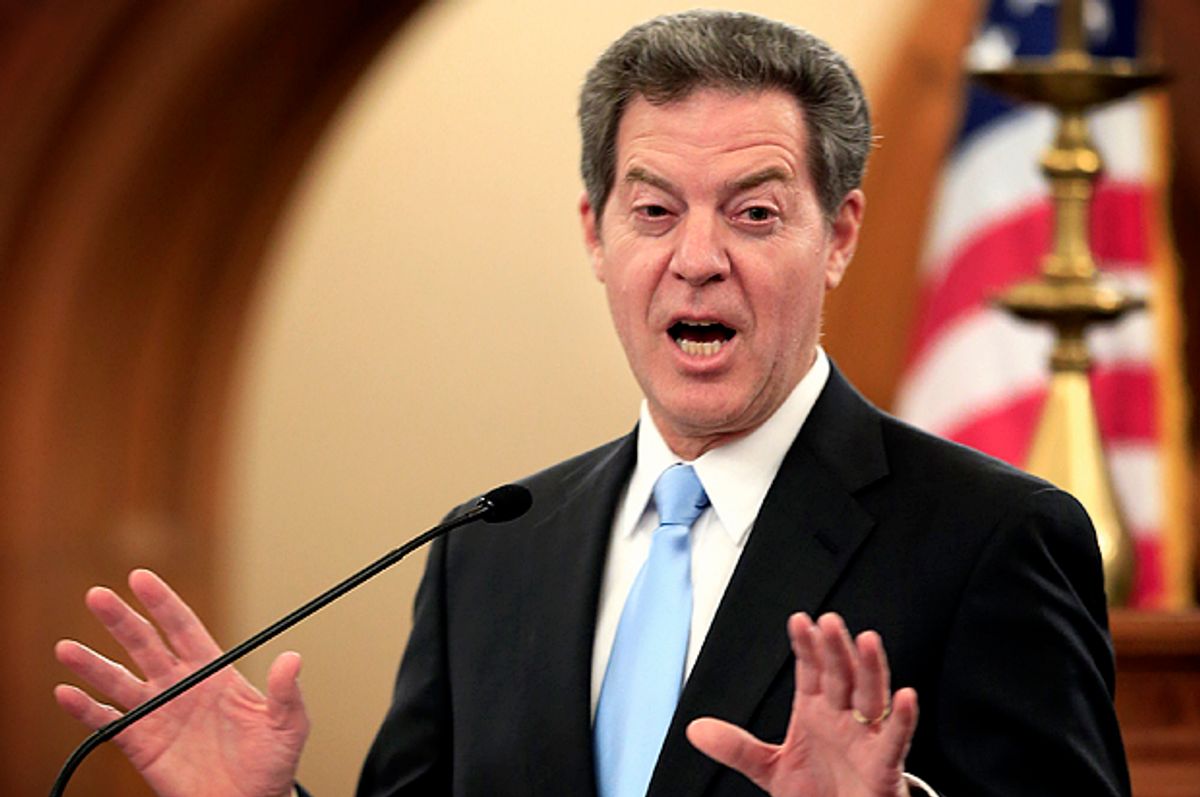Kansas Gov. Sam Brownback, the Republican responsible for the state's business-friendly tax policies, is now trying to erase any evidence of just how wildly unsuccessful his Reaganomics experiment has proved.
Last month the state's Council of Economic Advisors, which Brownback created in 2011 and still chairs, quietly discontinued quarterly reports originally intended to showcase the state's rapid economic growth. (During Brownback's re-election campaign in 2014, the reports were scrubbed from the internet and subsequently available only upon request.)
The council issued what ended up being its last report in May.
Brownback "specifically asked the council to hold him accountable through rigorous performance metrics," Heidi Holliday, executive director of the Kansas Center for Economic Growth, told The Topeka Capital-Journal. "Five years later, the metrics clearly show his tax experiment has failed while business leaders and local chambers of commerce across the state openly ask him to change course."
Holliday's Kansas Center for Economic Growth noted the reports' discontinuation and in April, the nonprofit issued its own economic proposal outlining the proven economic benefits of investing in public kindergarten-through-grade 12 education.
"Kansas struggles to keep pace with the investments necessary to ensure K-12 education remains relevant and responsive to workforce demands," the proposal explained. "Following a recent series of tax policy changes, the state continues to lose ground as job growth lags and revenue continues to trend downward."
Brownback ran for governor in 2010 on an archaic small-state economic platform that promised widespread tax cuts for business owners and high-income earners. These cuts — amounting cents on the dollar, essentially, for individuals — went into effect in 2012, and subsequent years of revenue losses have gutted public infrastructure and diminished quality of life in the state.



Shares